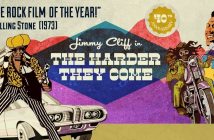Stories of great kings, warriors, demigods, and the paranormal heavily influenced the beginnings of Indian Cinema, soon becoming one of its endemic and prevalent thematic trope/subject. The release of Raja Harishchandra (1913) paved the way for the coalescence of similar narratives that soon were categorised as mythologicals and historicals, simultaneously inspiring an upsurge of individuals who came to be associated with these genres of Indian Cinema(s), albeit exclusively, including N.T. Rama Rao, Nirupa Roy, and Jeevan. One of them, although quite distinct from their collective cinematic language, was Bharat Bhushan (1920 – 1992), who was more of an urban romantic, but sadly disguised in rustic colours and personas.
Bhushan’s striking urbanity seemed evident when he plays Baiju in Baiju Bawra (1952) – one of the celebrated films that helped Bhushan achieve popular and critical acclaim – which extends via Mirza Ghalib (1954), where Bhushan plays the oft-quoted Indian poet, Ghalib.
I believe Bharat Bhushan’s mytho–romanticism culminates in 1960 with the Madhubala–starrer, Barsaat ki Raat and ‘the Bina Rai film’ Ghunghat, where his metropolitan demeanours discover a rather absconding closure. Though Bhushan somehow manages to get cast in better-suited roles (the more urbane, raw, ones) by the 60s, the time of his genesis seemed improper, as growing time soon overshadowed him by other younger actors, so by the time India began absorbing ‘the anew Bharat Bhushan’, it was already time for the individual to leave the centre-stage, and turn to supporting credit roles. Bhushan’s final leading roles, perhaps, were found in Jahan Ara (1964) and Naya Kanoon (1965), before his career dropped towards financial conundrums and social relegation, not to mention Bhushan’s return to mythologicals (albeit as side-characters), for instance, in Adi Shankaracharya (1983).
Nonetheless, Bharat Bhushan remains an unforgettable history, a chapter from Hindustani Cinema that is constantly revisited and celebrated, a trailblazer for soft dialogue–delivery and a softer cinematic presence, yet a thorough, strong constant . . . an evergreen icon.
# Won the coveted Filmfare Award in the ‘Best Actor’ category for Shri Chaitanya Mahaprabhu (1954).



